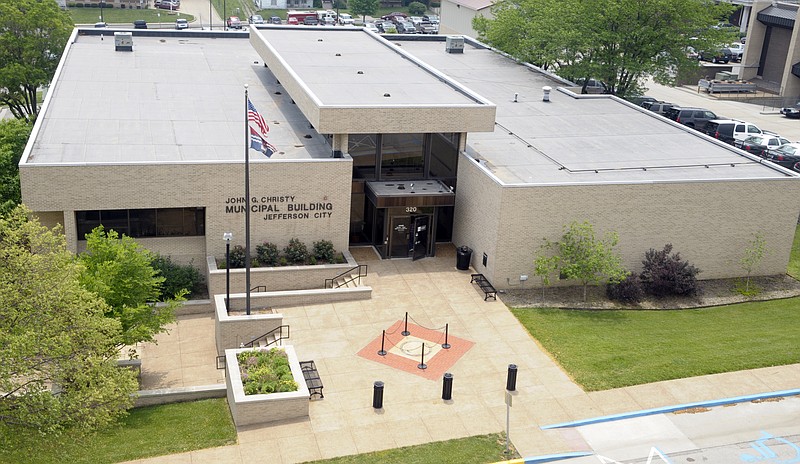Three developers went before the Jefferson City Council on Tuesday night simply to get a resolution saying the council supported their efforts to build affordable workforce housing.
The resolutions will be included in packets to be offered to the Missouri Housing Development Commission. Competition is high for commission dollars, city staff said.
But several of the council members appeared to feel slighted they hadn't been brought into conversations about the apartment complexes or duplexes. In actuality, the developers proposed apartments on properties that didn't require zoning changes or any other consideration from council members.
And more than three hours of debate ended in a division the mayor had to break.
Beau West, developer of a proposed 48-unit apartment building in the 1800 block of East Miller Street to be called Eastland Hills Apartments, said the city is in the midst of an employment crisis.
"It's being exacerbated and fueled along by an even more dire housing shortage across the city," West said. "Employers are trying to fill employment rolls at their jobs, and they are just unable to find employees to do so."
He pointed out the city recently published a study online showing a major reason for difficulty finding employees is the housing crisis.
Property managers said West and his father have a stellar reputation for providing safe, clean and affordable housing in the city.
Council member Ron Fitzwater expressed concern that creating new apartment complexes would stress the division of students for the city's schools.
Lela Gruebel, the developer for Oak Leaf Villas off Oak Leaf Drive, pointed out it's unclear where people displaced by the 2019 tornado ended up, but it's pretty certain many still live in the communities where the proposed developments are.
Oak Leaf Villas would include 42 duplex units in 21 buildings.
Gruebel said she has been working with city staff to offer affordable housing in Jefferson City since the tornado. But some of the funds have been stalled while folks waited for federal disaster funding.
Each developer competes differently, she said.
Fitzwater asked Gruebel if she anticipates having two- or three-bedroom units, translating into more people living in the units.
"I would anticipate that being the family size, in the three or four range," Gruebel said. "If you've got a son and a daughter, they want their own rooms."
Former Mayor Tom Rackers testified he is opposed to all three proposed developments. He said the biggest need in Jefferson City is for single-family housing.
"In my opinion, the reason (Jefferson City is) not growing is we're losing population," Rackers said. "People that can afford it are getting out of here."
Some of the women and children who go to Rape and Abuse Crisis Service are below the federal poverty level, RACS Executive Director Angela Hirsch told the council. But all of the women who leave RACS are under the federal poverty level because they often lose half their incomes.
By not supporting the projects, the city is saying they don't want the women who leave RACS to remain in the community, she said.
Central Missouri Community Action is a developer for a proposed 40-unit apartment complex at Trade Center Parkway to be called Stronghold Landing, Executive Director Darin Preis said. He and developer Pete McGraw presented a proposal for the project.
All of the units would be at 80 percent of the area median income or less, Preis said. Eighty percent for a family of four is about $66,000 in Jefferson City.
It's obvious the proposals have been on people's radar screens for a long time, just not on council's, Councilman Scott Spencer said.
"We need to do a better job of communicating," Spencer said.
"It has hurt my heart tonight to hear some of this discussion about the people who would move into these apartments," River City Habitat for Humanity Executive Director Susan Cook-Williams said.
She said the people they were discussing are the same people Habitat serves, who make less than 80 percent of the area median income.
Several speakers described living in squalor, which made council members ask why something wasn't being done about that.
City Attorney Ryan Moehlman said the city investigates when complaints are made. However, a lot of people are afraid to complain about their living conditions.
If a complaint were filed, the city would go in and inspect. And the city can be a very "blunt instrument," he said. It would mean putting people out on the street, and there is no housing available, he said.
It's a "black eye" for each project if the city doesn't offer a resolution supporting it, said Rachel Senzee, Jefferson City neighborhood services supervisor.
These projects are the first opportunity the city has had in three and a half years to put some housing units back into the city. The city has two major studies that are pushing for more multi-family housing, she said.
"In a nutshell, it says we have problems all over the place," Senzee said.
At the end of the discussions, the council voted on each of the proposals. Each was divided 5-5, with Jack Deeken, Ron Fitzwater, Mark Schreiber, Scott Spencer and Derrick Spicer voting against the resolution. Council members Jon Hensley, David Kemna, Mike Lester, Laura Ward and Erin Wiseman voted in favor of the resolutions.
In each case, Mayor Carrie Tergin broke the tie with a supporting vote.
--
Video of the meeting is available at https://www.youtube.com/watch?v=7CaD3UMvX_c.

